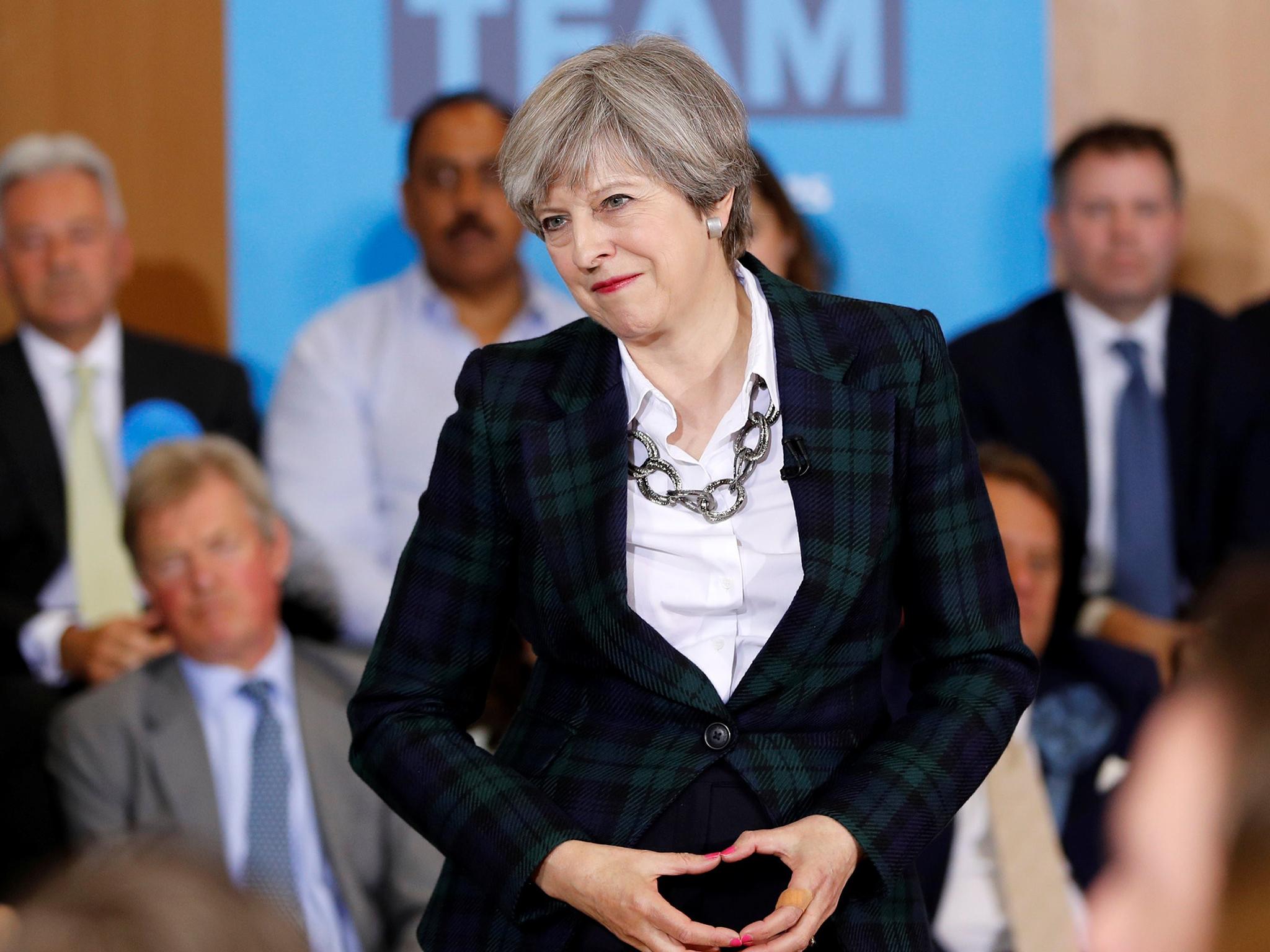There are boy jobs, girl jobs, and then there are plain old Tory jobs
Please send your letters to letters@independent.co.uk

Your support helps us to tell the story
From reproductive rights to climate change to Big Tech, The Independent is on the ground when the story is developing. Whether it's investigating the financials of Elon Musk's pro-Trump PAC or producing our latest documentary, 'The A Word', which shines a light on the American women fighting for reproductive rights, we know how important it is to parse out the facts from the messaging.
At such a critical moment in US history, we need reporters on the ground. Your donation allows us to keep sending journalists to speak to both sides of the story.
The Independent is trusted by Americans across the entire political spectrum. And unlike many other quality news outlets, we choose not to lock Americans out of our reporting and analysis with paywalls. We believe quality journalism should be available to everyone, paid for by those who can afford it.
Your support makes all the difference.Prime Minister Theresa May made a quip about her domestic arrangements when she went on the BBC’s The One Show declaring “There’s boy jobs and girl jobs.”
Her husband Philip May answered that in their home he did the “traditional boy jobs by and large”.
Philip May works as a pension fund expert at investment fund Capital Group, which has a large stake in companies like Stabucks and Amazon that have been accused of tax avoidance.
I wonder if Theresa and Philip May facilitating tax avoidance by mega wealthy corporations as a “boy job” or a “girl job”... or if it’s just a “Tory job”?
Sasha Simic
London
They live among us
You report (Primitive humans with a third of our brains were not wiped out but lived alongside us for millennia, 10 May) that a primitive form of hominid with limited brain capacity may have survived for longer than previously thought. However, this species is still alive and amongst us as a Tory.
Sam Boote
Nottingham
Bad blood
Oscar Wilde described fox hunting as “the unspeakable chasing the uneatable” – a sentiment that, 12 years after the Hunting Act came into force, continues to reflect the views of British public, 84 per cent of whom find the idea of frightened foxes being torn to shreds by packs of hounds deeply offensive. Theresa May’s intention to exploit the unbalanced political picture in Britain to subvert the wishes of the majority for the sick (and sickening) amusement of a minority who enjoy terrorising and killing animals is blatant opportunism. We expect those in positions of power to protect the most vulnerable and helpless, not bully and destroy them. Blood sports of any kind have no place in modern Britain, something May will quickly come to understand if she persists in her attempt to repeal the very popular hunting ban.
Elisa Allen
London
No energy to change
Energy tariffs are complex. They usually consist of a daily standing charge, a per unit energy charge, and monthly or annual discounts for on-line billing and/or direct debit payment. Comparing tariffs is not at all easy, and involves spending time with pencil, paper and a calculator, together with accurate historical information about consumption. It is hardly surprising that many people do not switch, but how will a price-cap help? Which part of this structure will Ofgem be asked to cap?
John Wilkin
St Edmunds
As one of the 79 per cent who has not switched their energy supplier, here is my explanation:
I already spend time changing my motoring organisation, broadband supplier, phone supplier, TV supplier, my car insurance, house insurance, contents insurance and travel insurance in order not to be ripped off for my loyalty.
It is time consuming, annoying, frustrating and in a life that is already too short, there are better things to do! The complexity of all the tariffs and price comparison sites with links to suppliers do not aid the process.
I also remember when utilities were a public good and wish for them to be again, they are natural monopolies and choosing between one supplier’s electricity or gas is no real choice at all. If they are to remain in private hands then a powerful and effective regulator is essential. I cannot say I am hopeful in this regard!
Martyn Wilson
Hampshire
In today’s Independent, Ben Chu says that maybe people don’t switch their energy suppliers “because they are baffled by the artificial complexity of the tariff contracts offered and feel too intimidated and confused by the concept of a market in domestic energy to switch” (The energy market is broken – but many customers refuse to be liberated from their extortionate tariffs, 9 May. On yesterday’s BBC Breakfast programme, the Energy Minister Greg Clark said that he had himself never switched because it was “quite a hassle to do so”.
Quite apart from the fact that the Government’s own policy for many years has been to encourage switching, Clark (and Chu) would find that search engines easily available on the internet do all the calculations for you. Merely submit your annual gas and electricity consumption and existing energy tariff, select your choice of new supplier (either through the search engine or directly) and they will do all the work of switching, only requiring meter readings on the actual switch date. If Clark finds that too much of a hassle, perhaps the job of being a cabinet minister is beyond him.
John R. Dean
Kent
Join our commenting forum
Join thought-provoking conversations, follow other Independent readers and see their replies
Comments